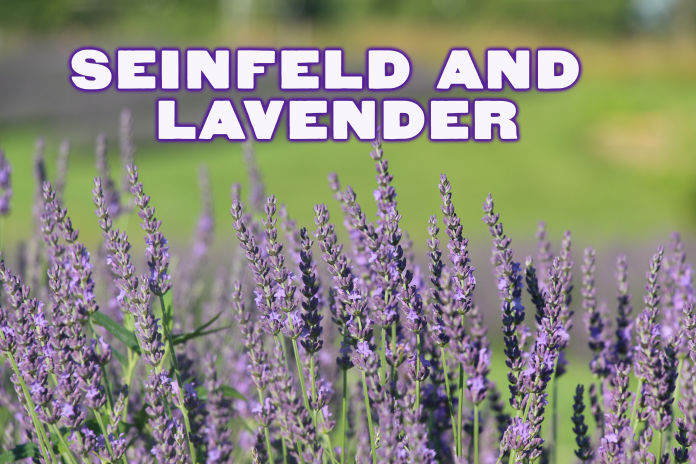

To understand lavender, it’s helpful to think about the classic Seinfeld episode when George succeeded in life by doing the exact opposite of what he’d always done before.
To grow lavender successfully, you have to jettison all the wisdom you’ve learned as a gardener and do the opposite. Providing your plants with plenty of water, fertilizer, and good soil will actually kill lavender. It’s hard to fight your intuition, but that is the recipe for success.
In the Seinfeld episode, George gets a date with an attractive woman by rejecting his usual pickup lines in favor of the opposite—admitting he’s unemployed and lives with his parents. That shouldn’t work, but it did.
Similarly, some lavender farmers amend their rich topsoil with.... rocks. For 150 years, Wisconsin farmers painstakingly picked rocks out of their fields, but to grow lavender, they have to throw the rocks back in. Some even truck in loads of gravel when establishing a new lavender plot. Yes it’s hard to watch.
And when everyone is praying for rain, lavender growers are cheering on the drought. Yes, they must do their cheering in secret, much like those three Chicago Bears fans who live in Green Bay.
For 150 years, Wisconsin farmers painstakingly picked rocks out of their fields, but to grow lavender, they have to throw the rocks back in.
The harvesting of lavender also requires you to do exactly the opposite of what your kindergarten teacher taught you. Specifically, you’re supposed to clutch a group of stems and then pull a razor-sharp blade toward your body. The cutting blades I purchased came with kevlar gloves, but I didn’t think the gloves were necessary. You can see where this is going. On the first cut, I got more finger than lavender. Off to the emergency room.
Thanks to a previous farm incident, I had learned that urgent care centers are anything but urgent. The receptionists at these facilities rank among the most relaxed people in our culture. “You’re bleeding profusely? Sure. What’s your zip code? You live on Stonecroft Road or Stonecroft Drive?"
The emergency room wasn’t much better, but after a 45-minute wait, I did get the needed 8 stitches. I might have required 10 or more, but the woman doing the needlework on my finger made the mistake of mentioning she was curious about the benefits of lavender oil. That triggered my detailed presentation (minus the Powerpoints). After a few minutes of my incessant droning, she said, “You know what, I think we’re done here. 8 stitches seems like plenty.”
The next day I was back cutting purple stems, with my pinky in a splint that made it look like I was enjoying high tea with a British dowager.
It was soon clear I’d have a lot of lavender. What to do with the bounty? I had to force myself to think 'opposite.' So in an era of Amazon warehouses that are so big they straddle multiple time zones, I needed to think the reverse: small and old-school. So I set up a roadside stand. Like George Costanza, I was quite surprised the opposite strategy worked. People bought fresh-cut lavender as fast as I could cut it. This made no sense to me. But then, I’m a guy. I also don’t understand yarn stores, or outlet malls. And I am completely perplexed as to why my wife likes Target more than Fleet Farm. She could get some very sensible footwear at Fleet Farm, but I can’t get her in the door.
The lavender crop this year is winding down, but my opposite strategy is just getting started. Lots of my other unorthodox crops are just coming into season. Will the opposite strategy continue to work? For George Costanza, it only worked for a while; then he reverted to his usual mediocrity.
I actually had a face-to-face meeting with Jerry Seinfeld once, when I interviewed him for a documentary I produced for PBS. Jerry told me that 'Opposite' was his favorite episode, because it tapped into ancient comedic device: watching stupid people who think they’re smart.
Is that me? The jury is still out.